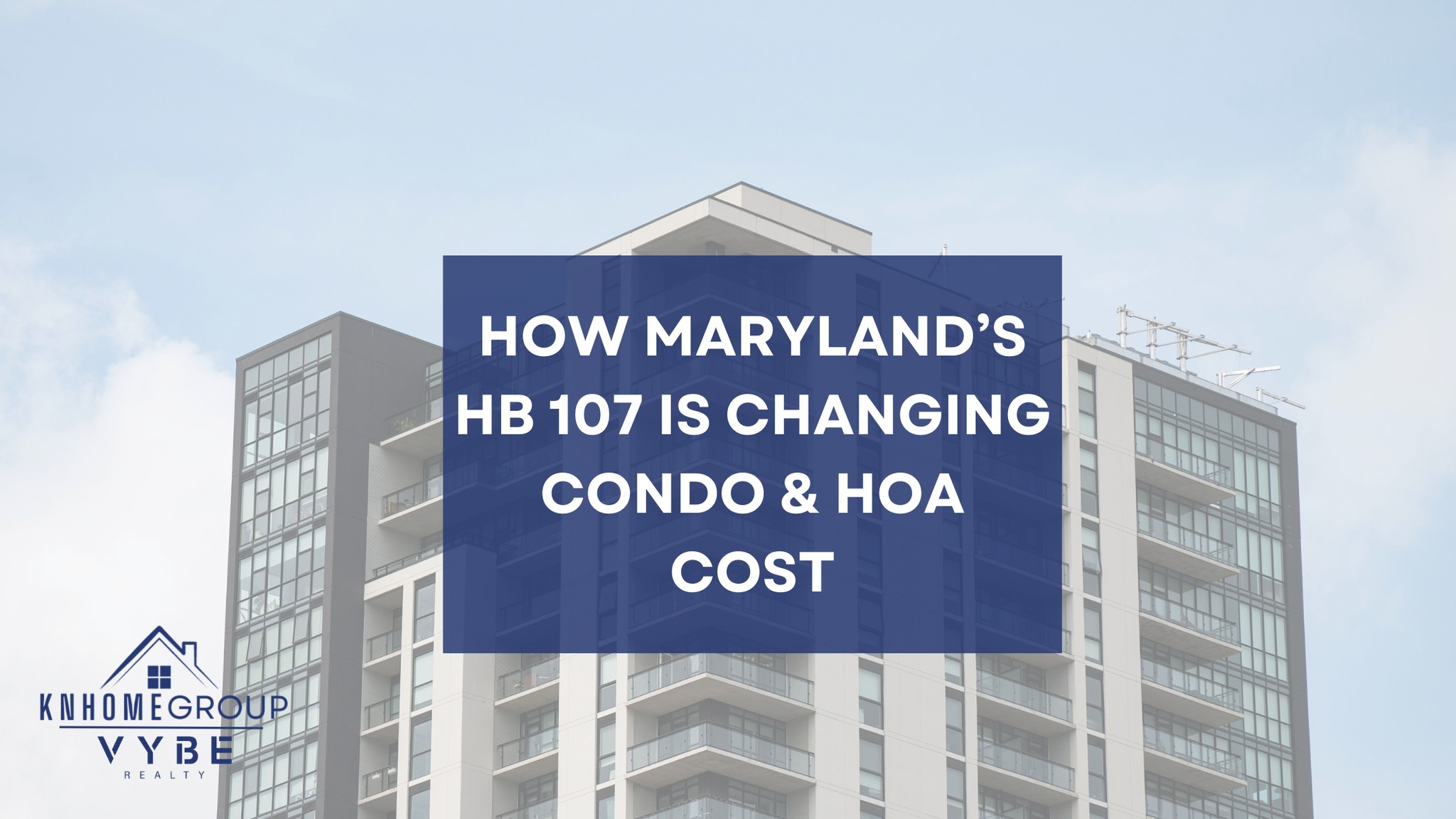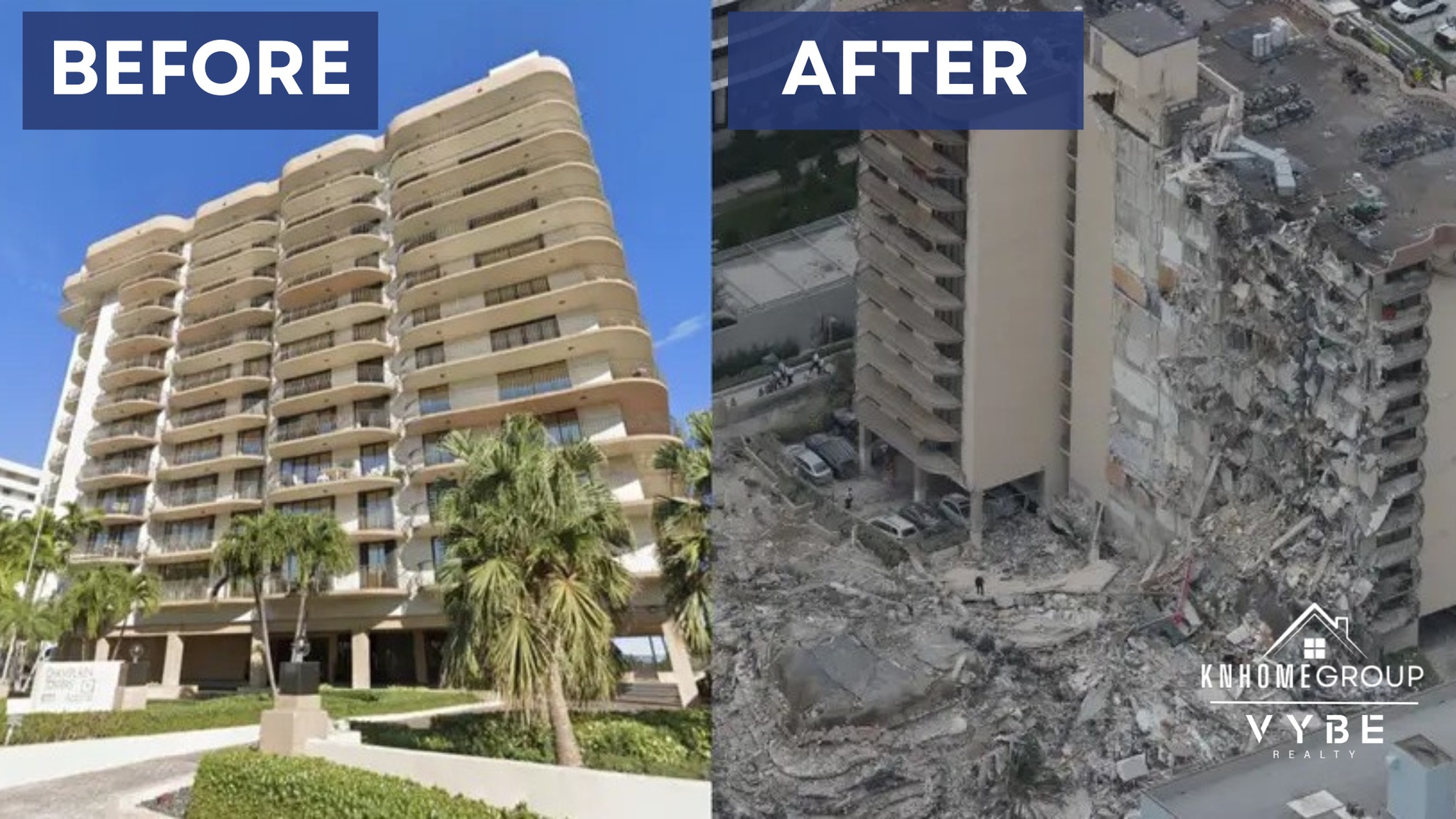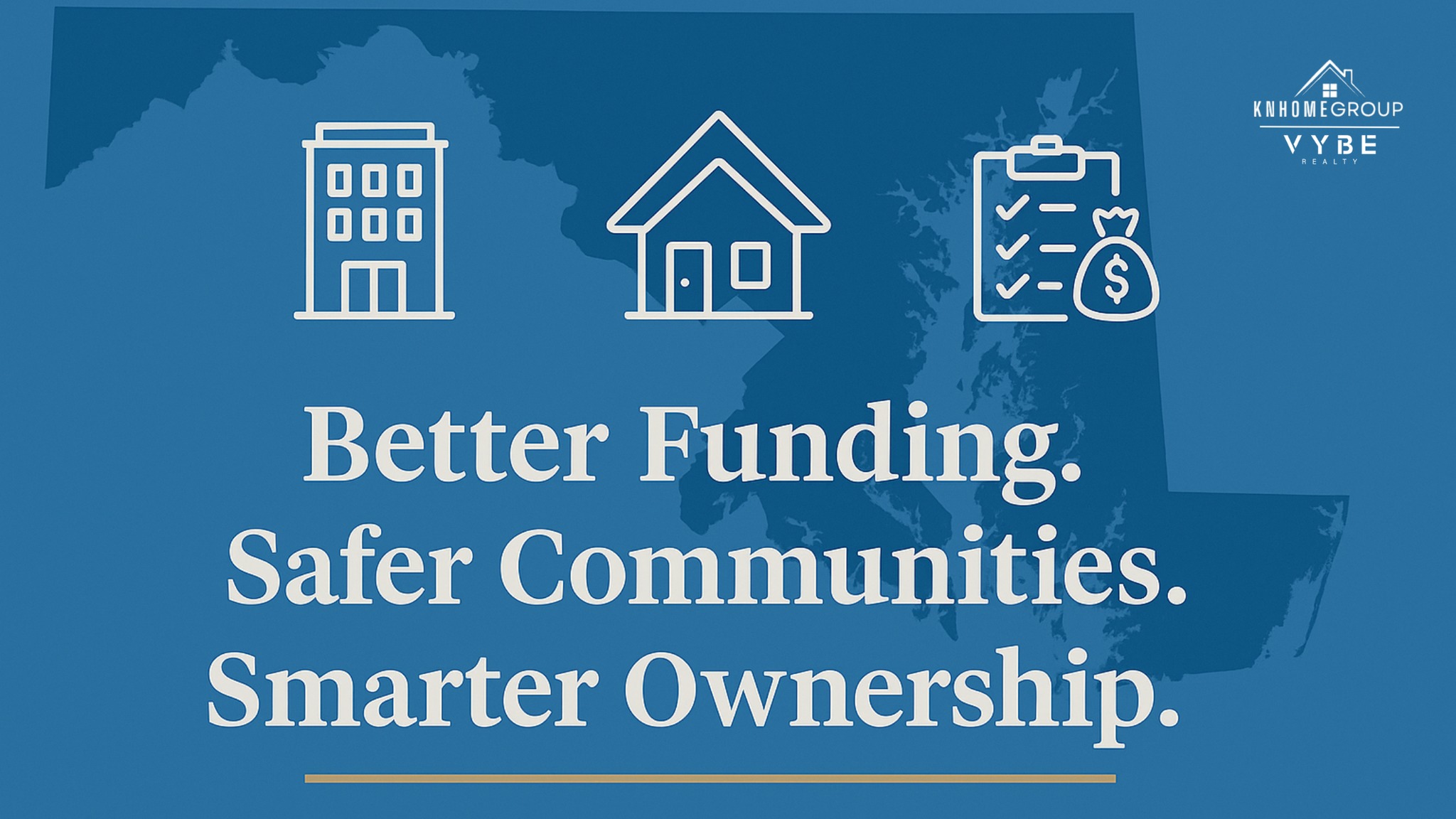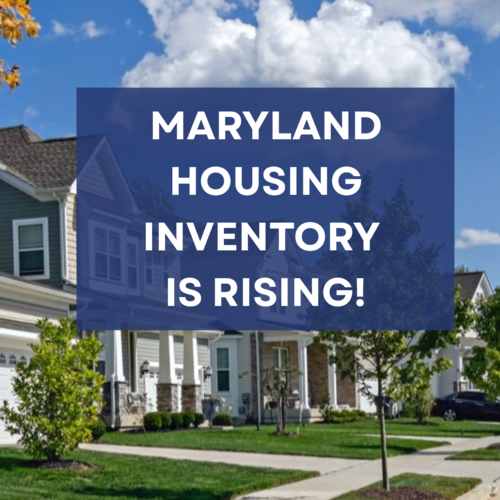If you own a condo or a home in an HOA community in Maryland, you’ve probably heard about House Bill 107 (HB 107) — or you soon will. This new state law is reshaping how communities manage their reserve funds, and it could directly affect your monthly fees, resale value, and long-term property costs.
Let’s break down what this law means, why it was passed, and how it impacts buyers, sellers, and current owners in Maryland’s condo and HOA communities.

What Is HB 107?
HB 107 is a Maryland state law passed to ensure that condominium and homeowner associations (HOAs) have enough money set aside for major repairs and maintenance — think roof replacements, structural repairs, elevators, and common-area updates.
Under the new legislation, every condominium association and HOA in Maryland must:
Conduct a professional reserve study every five years to estimate the cost of future repairs and replacements.
Begin fully funding reserves based on those studies by 2025 (for condos) and 2026 (for HOAs).
This means that boards can no longer “wing it” with minimal reserves or rely on emergency special assessments — they must proactively budget to protect both the property and homeowners’ investments.

How HB 107 Impacts Condo & HOA Fees
While this law makes communities more financially stable long-term, it can lead to higher short-term costs for homeowners.
Here’s what’s happening:
Higher Monthly Assessments
Many associations are adjusting their monthly dues to meet the new reserve funding requirements. Expect gradual increases as boards work toward full funding compliance.Fewer Surprise Special Assessments
The upside: properly funded reserves reduce the risk of sudden, hefty repair assessments that can shock owners.Greater Transparency for Buyers
Reserve study reports will become part of standard disclosure packets for home sales — helping buyers make informed decisions about a community’s financial health.

What This Means for Maryland Buyers
If you’re shopping for a condo or HOA home in Maryland, HB 107 gives you more protection — but it also means you’ll want to look more closely at the numbers.
When reviewing a property:
Ask for a copy of the latest reserve study.
Review the budget and reserve balance to see if it’s adequately funded.
Factor future fee increases into your monthly affordability.
Smart buyers will now prioritize well-funded communities, since they signal responsible management and fewer financial surprises down the road.
What This Means for Maryland Sellers
For sellers, HB 107 can affect how attractive your property looks to buyers.
Communities with strong reserves will stand out and sell faster.
Underfunded communities may scare buyers away or trigger lower offers if future fee hikes are expected.
Before listing your condo or HOA property, talk to your board or management company about the community’s compliance status. Being proactive — and transparent — helps you market your property confidently.

Why Maryland Passed HB 107
This law was introduced after several tragic building failures nationwide (including the Surfside condo collapse in Florida), which exposed how dangerously underfunded many associations were. HB 107 is Maryland’s way of ensuring long-term safety, accountability, and financial protection for all residents living in shared communities.
It’s part of a nationwide trend toward stronger oversight and better maintenance planning for condo and HOA properties.

The Bottom Line
HB 107 is transforming the way Maryland condo and HOA communities manage their money — and it’s bringing more stability, safety, and transparency to the market.
If you’re thinking about buying or selling a condo or HOA home in Maryland, understanding how this new law affects fees and values is essential.
Let's Talk About Your Maryland Real Estate Goals
At KNHome Group of Vybe Realty, we help clients stay ahead of the curve when new legislation affects their property values or ownership costs. Whether you’re planning to sell your condo, purchase in an HOA community, or just want to understand how HB 107 impacts your neighborhood — we’re here to help.
👉 Contact us today for a free consultation about how these changes could affect your next move.




